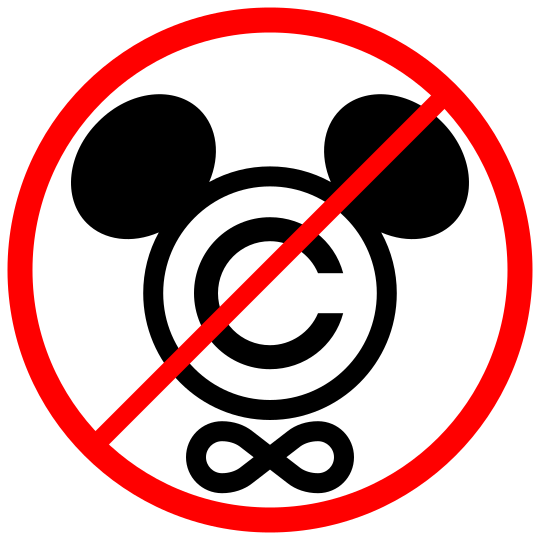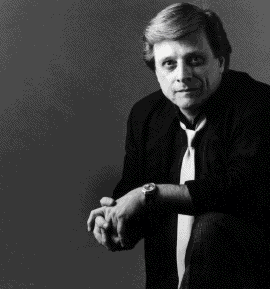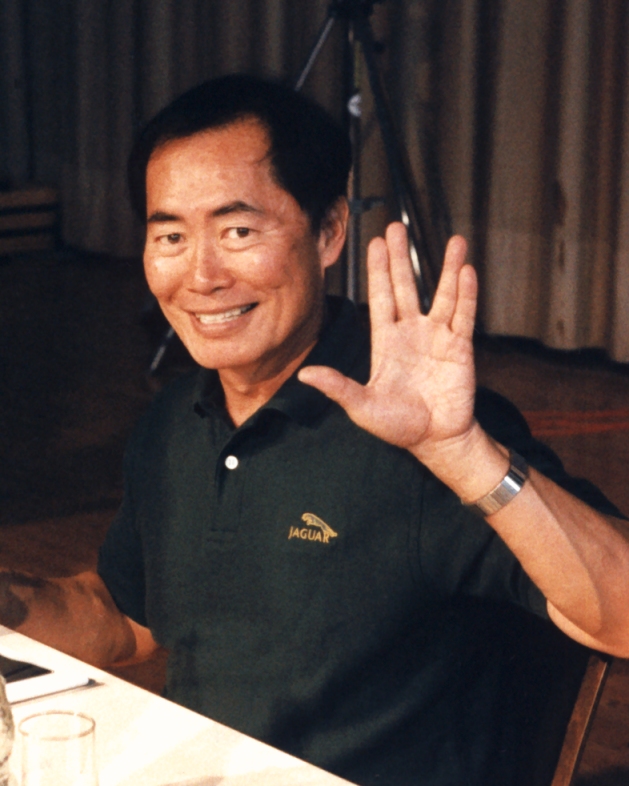 Many of us blithely sing “I have decided to follow Jesus, no turning back,” on a Sunday morning with no regard for what that actually means. But Christ didn’t hedge when he said: “Whoever wants to be my disciple must deny themselves and take up their cross daily and follow me.” If we believe God is great, and God has a path for us, we must accept that God’s path far exceeds the small plans we make for ourselves.
Many of us blithely sing “I have decided to follow Jesus, no turning back,” on a Sunday morning with no regard for what that actually means. But Christ didn’t hedge when he said: “Whoever wants to be my disciple must deny themselves and take up their cross daily and follow me.” If we believe God is great, and God has a path for us, we must accept that God’s path far exceeds the small plans we make for ourselves.New Jersey housewife Marcia Moston found this out the hard way when her husband came back from a church trip to Guatemala and informed her that he had been called to take over a shelter for widows and orphans, in a Mayan village so isolated that it didn’t have phone service. That makes no sense, Moston said. She was a church volunteer, a loving witness, a model of good American Christianity. What more did the Lord want?
As it turns out, everything. Moston found herself at what Bonhoeffer would have called the choice between “cheap grace” and “costly grace.” If we believe Christ has redeemed us, we must ask what we’ve been redeemed for. Do we bestow God’s blessings on ourselves and keep living as we always have, or do we trust the Lord to have a plan for our lives, even if we cannot see it at the moment? Too few Christians ask themselves that question.
Moston had to give up the comforts we associate with American living, and venture into a country so underdeveloped that she had to get cooking water from a cistern in the ground. But as she recounts in this memoir full of touching poignancy and unexpected humor, God coached her to discover resilience she didn’t know she had. She learned to love with a depth and commitment she never would have discovered in her suburban life.
She also learned the importance of giving up control. We humans have this pathological need to believe we can control our circumstances, but something always sidelines us, such as recognizing our debts to others in need. But we can also make an idol of the very goals we believe God gave us. So just as Moston got comfy in Guatemala, her whole family came down with rolling hepatitis, cutting her mission short.
 |
| Marcia Moston |
Moston believed, not unreasonably, that God meant for her to work with the disadvantaged in Central America. So when illness forced her family to return to America, and a sudden call turned her urban New Jersey electrician husband into a rural Vermont minister, she thought she’d lost everything her life was supposed to be about. You’d think, after two hard lessons, she’d come to recognize God’s purpose in her strange circumstances.
As it turns out, she found a new calling, connecting New Englanders eager to put their Christian calling to work, with needy Central Americans ready to see what Christianity looks like in action. She also learned that, despite her desire to cede control to others, she has a remarkable gift for leadership. Her ministry has helped link two groups of people, each known for their insularity, in a relationship of Christian reciprocity and unbounded love.
The life Moston describes is one of constant learning and discovery: the life of a Back East woman who thought she knew more than her churchy parents, so she left everything behind, only to find that the promises of this earth aren’t worth much. The life of a born-again housewife who learned that God has a way of turning us out of our complacency. The life of a wayfaring stranger who learned that wherever God plants us, will be our soul’s real home.
This is the book I wanted when I read Joe Loconte’s The Searchers. Where Loconte dances around the idea of Christianity as a journey we must undertake with our God, Moston recounts what it’s like to go through such a real and arduous journey. In her case, it involved literally moving from place to place. But the more important journey took place inside her soul, as she learned the difference between her culture and her faith.
 A promising-looking
A promising-looking 


 This story takes remarkably few liberties. Much of Carter’s “case” against Lincoln comes from the impeachment of his Vice President, Andrew Johnson. But Johnson was regarded as a lucky drunk, foisted into the Presidency by blind chance and someone else’s politics. When the same sectarian divides attack a popular war President, the stakes increase exponentially. A case that actually turned on one vote now spills blood and threatens to restart the war.
This story takes remarkably few liberties. Much of Carter’s “case” against Lincoln comes from the impeachment of his Vice President, Andrew Johnson. But Johnson was regarded as a lucky drunk, foisted into the Presidency by blind chance and someone else’s politics. When the same sectarian divides attack a popular war President, the stakes increase exponentially. A case that actually turned on one vote now spills blood and threatens to restart the war. Does anybody really enjoy driving anymore? That’s not a rhetorical question. Do you revel in the call of the open road, spend time behind the wheel as a recreational pastime, or “get your kicks on Route 66”? I doubt it. Cars have had a far-reaching impact on American life, American cities, and American expectations. And if we believe our own senses, these effects have been less than salutary.
Does anybody really enjoy driving anymore? That’s not a rhetorical question. Do you revel in the call of the open road, spend time behind the wheel as a recreational pastime, or “get your kicks on Route 66”? I doubt it. Cars have had a far-reaching impact on American life, American cities, and American expectations. And if we believe our own senses, these effects have been less than salutary. The myth of the Great American Road Trip has given way, in many cities, to ninety minute commutes. The ease of getting from place to place seems less impressive in much new urban sprawl, so vast and intricate that we cannot find our destination without military-grade satellite technology. Car culture has become so frustrating that many people, including me, joke that we’d be unable to drive if we injured our middle fingers.
The myth of the Great American Road Trip has given way, in many cities, to ninety minute commutes. The ease of getting from place to place seems less impressive in much new urban sprawl, so vast and intricate that we cannot find our destination without military-grade satellite technology. Car culture has become so frustrating that many people, including me, joke that we’d be unable to drive if we injured our middle fingers. We cannot eliminate all cars. We rely on automobiles for mail and package delivery, safe transport of perishables, and emergency services. My parents, living in the country, would be trapped without their car. But if we compare the vast marginal costs to the limited core benefits, we know that most of us are not better off for owning cars.
We cannot eliminate all cars. We rely on automobiles for mail and package delivery, safe transport of perishables, and emergency services. My parents, living in the country, would be trapped without their car. But if we compare the vast marginal costs to the limited core benefits, we know that most of us are not better off for owning cars.






 Last week’s revelation that CNN’s Anderson Cooper is gay delivered the usual chorus of applause and catcalls. Some people praised his forthrightness, and his willingness to come forward as a public figure. Others condemned him as the latest embodiment of America’s moral decline. The response was as predictable as online Twilight fan fiction. And it all overlooked one important question: does it matter?
Last week’s revelation that CNN’s Anderson Cooper is gay delivered the usual chorus of applause and catcalls. Some people praised his forthrightness, and his willingness to come forward as a public figure. Others condemned him as the latest embodiment of America’s moral decline. The response was as predictable as online Twilight fan fiction. And it all overlooked one important question: does it matter? Yet I wonder who cares. Jim Parsons’ sexuality will not affect my enjoyment of
Yet I wonder who cares. Jim Parsons’ sexuality will not affect my enjoyment of  I don’t want to be seen saying that all celebrity sex is tawdry, or that all gay celebs should keep silent. When Sean Maher came out recently, for instance, he did so with the noble goal of giving gay youth a positive role model. With his stable relationship and growing family, Maher provides a sterling example of how open homosexuals are legitimate members of their communities. His openness helps raise the bar of the discussion of sex in society.
I don’t want to be seen saying that all celebrity sex is tawdry, or that all gay celebs should keep silent. When Sean Maher came out recently, for instance, he did so with the noble goal of giving gay youth a positive role model. With his stable relationship and growing family, Maher provides a sterling example of how open homosexuals are legitimate members of their communities. His openness helps raise the bar of the discussion of sex in society.
 She also alternates between gritty frankness and nigh-Victorian modesty. In the very first chapter, her FBI agent manages to shoot two gang bangers in the chest from a moving car (don’t overthink it). At various times, Mills describes people getting their heads blown off, bodies showing signs of elaborate torture, and several situations where Kariss lives in fear of getting raped. And she describes these scenes with unflinching detail.
She also alternates between gritty frankness and nigh-Victorian modesty. In the very first chapter, her FBI agent manages to shoot two gang bangers in the chest from a moving car (don’t overthink it). At various times, Mills describes people getting their heads blown off, bodies showing signs of elaborate torture, and several situations where Kariss lives in fear of getting raped. And she describes these scenes with unflinching detail.
 This same malleability applies to his subject matter. As a classicist, known until now primarily for his translations of Sappho, he has spent his professional life immersed in the Greco-Roman world. But he lives in Judeo-Christian America, and in some of his verses, he views Jerusalem (to pinch a metaphor from St. Anselm) through the lens of Athens. Consider the opening stanzas of “The Bad Tree”:
This same malleability applies to his subject matter. As a classicist, known until now primarily for his translations of Sappho, he has spent his professional life immersed in the Greco-Roman world. But he lives in Judeo-Christian America, and in some of his verses, he views Jerusalem (to pinch a metaphor from St. Anselm) through the lens of Athens. Consider the opening stanzas of “The Bad Tree”:


